#tewesday
Photo
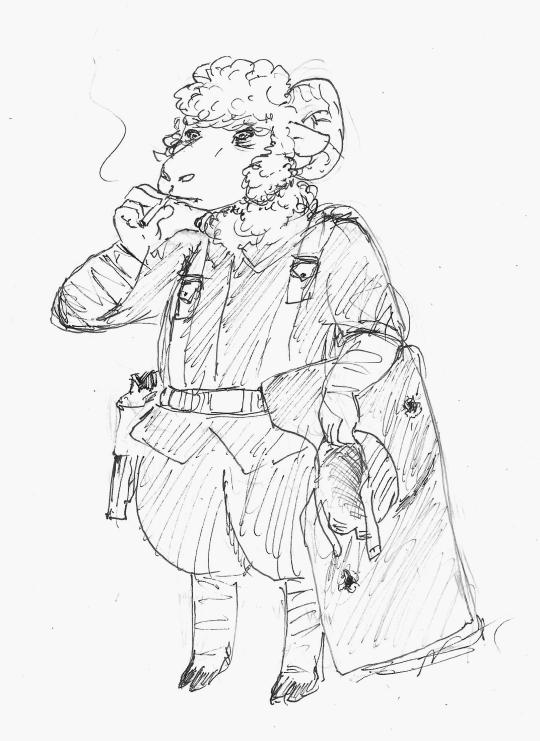
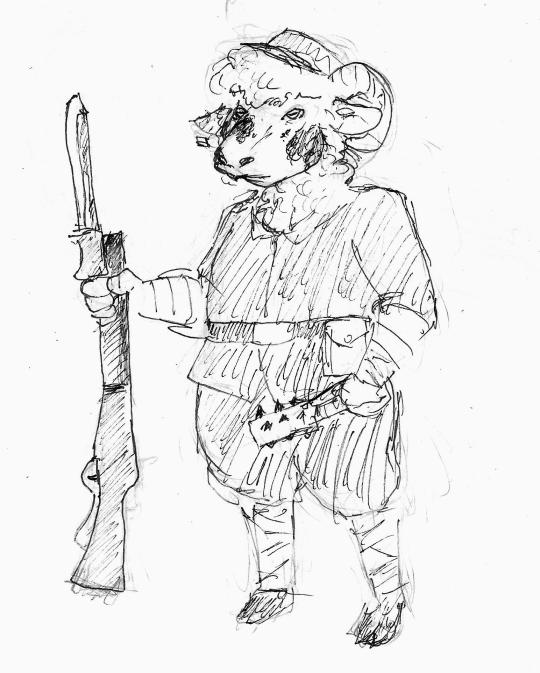

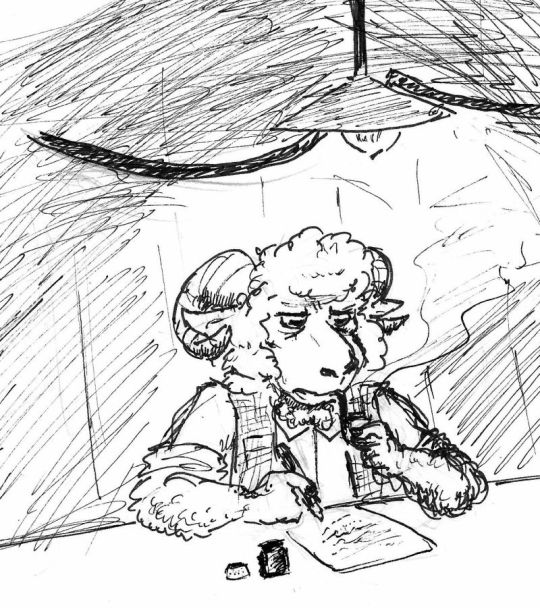
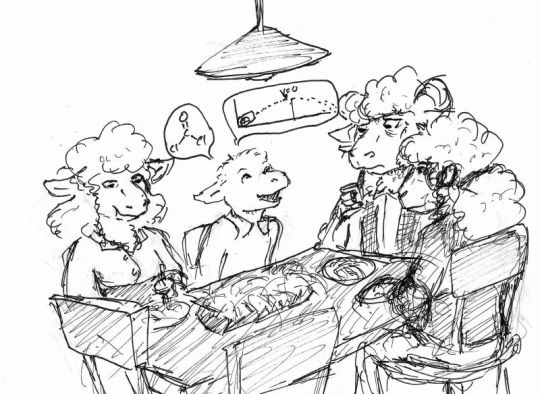
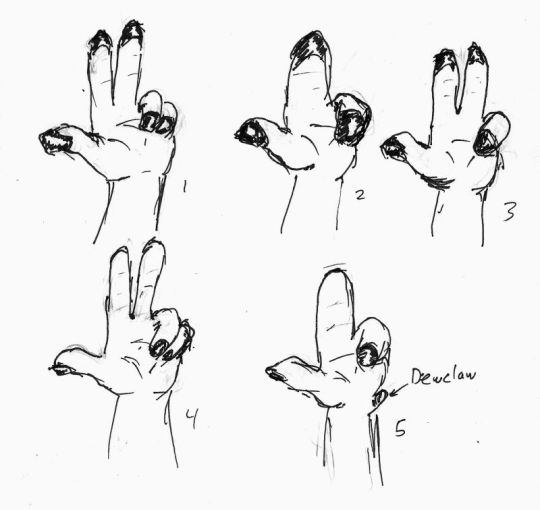
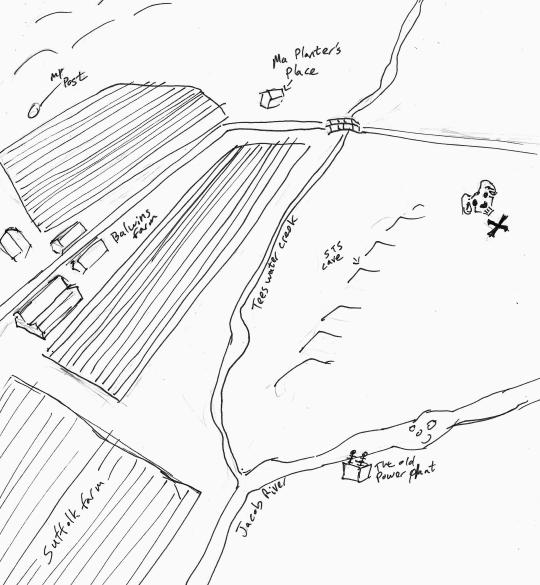

Bunch of old /tewesday/ shit.
1 note
·
View note
Photo

22-02-2022 - Twosday countdown!
Today is the only time in your life when there will be so many similar numbers in the date: 02 02 2022!
The 8-digit palindrome that hasn't happened for more than 900 years.
A palindrome is any sequence, phrase or word that reads the same backward as forward. And 02/02/2020 is considered a “universal palindrome” because it reads the same whether written as “Month/Day/Year" as the United States does, or “Day/Month/Year" as many other countries do.
The last universal palindrome occurred on 11/11/1111. The next one won't come until 12/12/2121.
Tuesday has nothing to do with 2. It originates from the oldest version of English from the middle ages, where week days were named after the gods, and the day was called Tiwesdag.
Up to around 1500, it's name was Tewesday - the day of Tiw. Tiw was the god for law and justice.
#funny pictures#funny facts#today#tuesday#twosday#02022022#numbers#2#countdown#2222#22:22#02#22022022#surreal#tiw#gods#tiwesday#tewesday#palindrome#palindrome day
198 notes
·
View notes
Photo
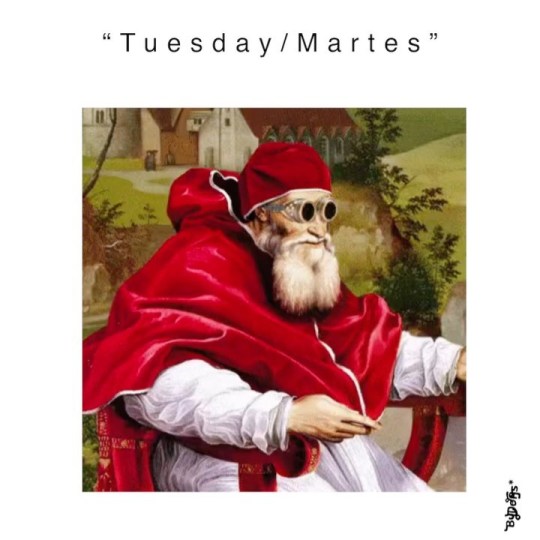
Tuesday is the second or third day of the week, depending on the country or culture. It follows Monday and precedes Wednesday. The English name is derived from Old English Tiwesdæg and Middle English Tewesday, meaning "Tīw's Day", the day of Tiw or Tyr, the god of single combat, and law and justice in Norse Mythology. Tiw was equated with Mars in the interpretatio germánica, the name of the day is a translation of Latin dies Martis. Those born on Tuesday share a fighting spirit and strong determination, always fuelled by a desire to lead and win. Their prominent characteristics are fiery nature, active disposition, enthusiasm, zealous energy, courage, and impatience; inherently brave and will protect their partners, children, and family fearlessly, against all the impediments of life. The fiery red planet Mars becomes important in the natal chart, will be born fighters. They will have a steely determination and a desire to lead and succeed. They will be courageous, enthusiastic, and well-motivated. However they may become impatient and at times, be hostile. Tuesday is a driving force in the workweek and will auger a sense of productivity, competition, effectiveness, determination, and completion. #martes #tuesday #mars #marte #planet #planeta #dia #day #energia #energy #astrology #astrologia #meaning #significado #artwork #arte #gif #giphy #inside #jocelynkglei #webpage #do #chooseday https://www.instagram.com/p/COvEkcYHof9/?igshid=u7qk1sv502k5
#martes#tuesday#mars#marte#planet#planeta#dia#day#energia#energy#astrology#astrologia#meaning#significado#artwork#arte#gif#giphy#inside#jocelynkglei#webpage#do#chooseday
0 notes
Photo

#Tuesday. Originally, Tuesday was named after the Roman god of war, Mars. However, the Norse people named it after their god of war, Tyr. Old English – Tīwesdæg – Tiw's day, Middle English – tiwesday or tewesday, Old Norse – týsdagr, Latin – dies Martis – Day of Mars, Ancient Greek – hemera Areos – Day of Ares. #mars #languages #war #english #language #ancient #greek #synonyms #middleenglish #oldnorse #ancientgreek #dayofmars #norse https://loom.ly/_BMnnNA https://www.instagram.com/p/CMwkJDCgSlX/?igshid=u6hdb927lugr
#tuesday#mars#languages#war#english#language#ancient#greek#synonyms#middleenglish#oldnorse#ancientgreek#dayofmars#norse
0 notes
Text
Have a Good Time
Characters: Sami Zayn x Requester's OFC (Penny)
A/S/F: Fluff
Summary: Birthdays are an utter waste of time. Aren't they?
Request: Can I put in a request for a birthday fic with Sami Zayn and my OC Penny? Sweet, fluffy, hyper Sami making her realize her birthday isn't just another day
Requested by: @vixxyvampire
Notes: Title inspired by Birthday (by The Beatles)
Tagging: @llowkeys | @the-geekgoddes | @horcruxhunter5972 | @zombiexbody | @imtoldimbabe | @vebner37 | @nickysmum1909 | @taryndibiase | @justtrey19 | @stardust2012 | @alexahood21 | @lunaticqueen7 | @thephenomenonalkingofthebrogues | @tmriddler | @styl3sl0v3r | @blondekel77 |
"Penny…"
Her dream, which involved a sandy beach, an icy mixed drink, the sounds of waves crashing, and the perfume of tropical flowers and coconut, began to dissipate. She groaned, pushing her face further into the pillow in hopes of bringing it back.
"Penny…"
Nope, it was gone now. The sand was no longer tickling her toes. The waves were no longer crashing. Her icy mixed drink was gone, paper umbrella and all. Tropical flowers and coconut were fading memories. Whining now, she shifted her head.
"Penny Lane," Sami's voice crooned. His nickname for her earned him a grumbled curse but he ignored it, his hand lightly shaking her shoulder.
"What," she grunted, grabbing the edge of the blanket and tugging it over her head.
"Do you know what day it is?"
"It's… Tuesday." Maybe if she started to ignore him she could go back to sleep and return to her tropical paradise.
"Yes," he encouraged, shaking her shoulder again. "And what's Tuesday?"
"The day after Monday," Penny muttered.
"No, no, it's more than that."
"The day before Wednesday."
"C'mon, Penny Lane, you can do better than that!"
He was shaking her shoulder so hard that returning to dreamland was an impossibility. Throwing the blanket down with a growl, she sat up and glared at him. "What more do you want? Tuesday is derived from Old English Tiwesdæg and Middle English Tewesday, meaning Tiw's Day. The day of Týr, Norse god of single combat, victory, and—"
"You're such a nerd," he teased, leaning to press a quick kiss to her lips. "I love it."
"You've gotten me up now. What do you want?"
"Tell me what Tuesday is," Sami insisted, hopping out of bed as though something had pinched him.
She flopped back against the pillows, seriously reconsidering her decision to spend the rest of her life with the man. She was pretty sure she'd made that choice under duress. Probably when he was being hyper and annoying. "It's… TV day?"
"You're getting warmer," he proclaimed, using the sing-song voice that she usually found adorable and charming.
"It's… Penny and Sami breakup day?" she suggested.
He turned from his suitcase, his expression one of shock, his lips already forming a frowning pout. "Penny—"
"Kidding!" she promised, climbing out of bed. She wasn't as energetic as he, so it took her longer, but she closed the distance between them as quickly as she could. "I'm sorry, darling, I was just teasing."
He kissed her again, and was smiling when he pulled away. "Now, tell me. What's Tuesday?"
"It's…" She faltered, struggling to recall what momentous occasion had him bounding around their hotel room at the crack of dawn. Not even the crack of dawn, she realized with a whine, seeing no hint of sunlight through the open curtains. He wasn't doing media. It wasn't an anniversary that she could remember. They'd met on a Wednesday, had their first date on a Friday… They'd professed their love the first time on a Thursday. They'd made love the first time on a Sunday. He'd proposed on a Monday. They would be getting married on a Saturday. As far as she knew, nothing of importance had occurred on a Tuesday.
"Penny… Baby doll…"
"Could I have one teeny-tiny hint?" she asked, biting her lip.
Sami groaned, wrapping his arms around her and kissing the top of her head. "Think, doll…" Then he began to hum.
She didn't recognize the tune at first, instead enjoying the warmth of his chest against her cheek. She could hear his heartbeat, and the way his hums vibrated, and… "Oh, shit," she blurted, rearing back. "Is that today?"
"Is that today?" he repeated, slapping a hand to his forehead.
"You know I never think about it!"
"And you know that I do!"
"It's just another day," she insisted with a groan, glancing hopefully to the bed. Now this nonsense was over, she could catch another couple of hours of sleep. She was halfway to the bed when he grabbed her arm and tugged her back. Gasping in outrage as he propelled her towards the bathroom, she sent him a glare. "What are you doing?!"
"You're going to take a shower and get dressed. Wear something comfortable and warm."
"Why am I getting dressed?"
"Because I have a surprise for you."
"The last time you had a surprise for me at this time of day, it was a heart shaved into your pub—"
"Go," Sami insisted, giving her a nudge towards the tub.
***
"Isn't this amazing? Smell that crisp air!"
Penny looked on in the predawn light as Sami paused on the trail. Lifting an eyebrow when he pounded on his chest, she began to shake her head. "You're delusional."
"C'mon! Take a deep breath."
She obliged, but refused to beat on her chest. It wasn't amazing. It was cold. Well, cold to her. Exhaling, she took his outstretched hand and let him continue leading her up the trail. They were climbing. It wasn't a mountain, but at five forty-five in the morning, it may as well have been Mt. Everest. They were just going up a hill on the outskirts of the city, for some ungodly reason. She had never been a morning person. She knew she would never be a morning person. So of course she had partnered up with a man who adored mornings.
"Almost there," he promised, giving her hand a squeeze.
"Then we can go back to the hotel? Right?" she asked hopefully, sighing when he merely grinned.
"Stop pretending you're not having fun."
"Honestly, Sami, this is ridiculous. Dragging me out of the warm bed to go traipsing up to the top of the world without coffee, and—" She cut off when he suddenly stopped. He let go of her hand and moved to stand behind her. "Sami," she said warningly when he cupped his hands over her eyes. "What are you—"
"Walk forward," he said softly. She did so, guided by his voice. Then, shuffling, she turned to face in the opposite direction. He kept his hands over her eyes, thumbs lightly stroking her cheeks. "Now, relax, doll. Just a couple more minutes."
Penny kept silent, mentally plotting her revenge. Her mind was too foggy and clouded with irritation to plot something truly devious, though. And maybe she loved him a little bit too much to entertain any ideas that would actually hurt his feelings. Damn it. "Sami…"
"Now," he whispered, dropping his hands to her shoulders. "Here comes the sun…"
Blinking, she found she was staring out at the city. Beyond, on the horizon, the sun was just starting to peek out, filling the sky with brilliant hues of yellow and pink. The sight took her breath away, and she could only stare while the sun continued to rise, melting away the chill of the night. The rays glinted off the skyscrapers, and she felt all her irritation slip away as a sunbeam landed on her face. "Oh," she whispered, leaning back against him.
"See the beautiful present the sun made for you?" he murmured, resting his head next to hers and kissing her cheek.
"It's amazing," she agreed, one hand reaching to hold onto his. "Thank you."
"What's Tuesday?" he whispered.
"It's…"
"Whoop, look at the time. We've got to get moving." He gently caught her wrist and began leading her down the trail.
"Why do we have to get moving?" she asked, jogging to keep up with his longer strides.
"You'll see."
***
The park was silent, save for the gentle splashing of the ducks in the nearby pond. Sitting between Sami's legs, his arm around her, Penny enjoyed the peacefulness of the surroundings. The old oak tree was the perfect shady spot for them to sit and enjoy the gourmet siphoned coffee he'd purchased for them, and the curious ducks waddling up the knoll were amusing in their search for crumbs from the flaky pastries Sami had gotten them at a bakery. Considering their usual breakfast when on the road consisted of whatever the hotel had to offer, she was in seventh heaven at the moment.
"What's Tuesday?" he asked, pushing her hair aside and kissing the side of her neck.
"It's…" She let her voice trail into a sigh, breaking apart the last of her pastry and tossing it to the ducks.
"We've got one more thing to do before we go to the arena," he announced once the last crumb had been gobbled up by one of the hawking throng.
"We do?" she asked, wishing they could stay under the old oak for a few more moments. Just to enjoy the dappled shade and the faint breeze.
"It's not far."
***
"Sami, you are insane! This is too much!"
"Shh."
"Don't 'shh' me! I refuse to let you spend that amount of money on something I'll never wear!"
"Shh!"
"Sami Zayn, I swear, if you don't—"
"Miss?"
The voice of the other man in the room silenced her. Pressing her lips together, she looked to Sami, hoping he would see sense and end the craziness. Instead, he seemed focused on tucking a business card into his wallet with almost obsessive-compulsive precision. He glanced at her with hopefulness shining in his brown eyes. Heaving a sigh, she gave a consenting nod and lowered herself into the waiting chair. There was a flurry of sudden activity all around them, but she could only look to Sami, whose smile was brighter than the sun.
"I love you, you crazy fool," she said while her hair was styled into an upswept twist. She watched Sami throughout, because she wasn't allowed to look in either of the mirrors of the salon. The closed salon, where the main stylist had greeted her with a decadent chocolate éclair. Her nails had been manicured, her brows threaded, a woman had made up her face, and now…
"I love you too, my sweet little princess," he crooned as something firm was pressed into her hair.
"I also hate you a little bit for doing all this."
"Nah, you don't," he decided.
He looked so excited. So happy to spend his hard-earned money on her. And to what end? Rolling her eyes when he began to grin, she gasped as the chair was swung around and she was allowed to see her reflection.
"You look like Audrey Hepburn," Sami told her, grinning at her in the mirror. "Only more beautiful."
She didn't see it, but she did see the dainty tiara pinned into her hair. "Oh, Sami," she whispered. "This is—"
"Beautiful," he finished.
"This way, miss," the stylist said, indicating two of his assistants waiting in the rear of the salon.
"Now what?" Penny asked, looking to Sami.
His grin was, if possible, wider. "You'll see. And you'll love it."
It turned out to be a new dress. A little black dress that seemed to have been made just for her figure. It was also a pair of strappy black sandals. It was the two assistants gushing over how fabulous a fiancé Sami was and how romantic it was that he was giving her so many surprises on this day.
"What's Tuesday?" Sami asked when she was escorted back into the main salon. To her surprise, he'd changed into a suit.
"It's starting to be something special," she admitted, reaching to adjust his tie.
"One more stop," he whispered, kissing her forehead while taking her hand.
***
"You're spoiling me."
"No, I'm treating my future wife to a few little things I know she'll love," he disagreed.
Hand in his, she slowly strolled through the empty halls of the art gallery. Old masterpieces stared at them from the walls, and she marveled at being able to enjoy them without tourists and groups of schoolchildren getting in the way. Though she knew he had to be at the arena soon, he didn't rush her. In fact, he encouraged her to take her time. And while she studied an old portrait of a Regency-era woman, he seemed to study her.
"What's Tuesday?" he whispered.
"It's today. It's… It's a pretty damn special day, Sami."
"What else is it?"
"It's…" She gazed at the seemingly all-knowing face of the woman in the portrait. "It's my birthday."
He gasped, one hand going up to clutch his chest. "It is?! I had no idea, doll! Why didn't you say something?!"
"Because it's just another day! Well, it used to be. I mean… You're not going to do this every year, are you?" she asked, indicating the dress and the jewelry and the paintings around them.
"I'm thinking next year we'll do a hot air balloon ride, actually." He glanced at his watch, ignoring her look of shock, then took her hand again. "C'mon, time to go. There's one last little surprise waiting for you."
***
When they walked into the arena, the backstage area seemed oddly quiet. There wasn't the usual hubbub. In fact, save the security man that signed them in, they passed no one. Sami hummed the birthday song while they made their way down the hall, and appeared not to notice the place was deserted. He parked their suitcases next to a wall and guided her down another hallway, and she saw the sign for Catering just before he pushed open a door.
"SURPRISE!"
There was an explosion of noisemakers, cheers, and an off-key rendition of the birthday song. Confetti and streamers flew at her while the entire roster and backstage crew gathered around. Shocked, Penny could only stare at Sami, who was grinning wider than he had all day. The crowd parted and her breath caught when the room went dark. They sang on, starting the song over as a cake lit with sparklers and candles was brought forward.
"Make a wish," Sami called to her.
She did. The wish may have included a hot air balloon ride, or perhaps another sunrise on a hill, or maybe breakfast under an old oak tree. She would never tell. Well, maybe she would tell Sami. If he wheedled her enough. Which he probably would.
"What's Tuesday?" he asked once again while lifting a forkful of cake to her mouth.
She grinned. "My birthday."
"You sure? Not just another boring workday?"
"Never again," she promised. The cake was delicious. She hoped there would be some left to take home.
"Next year it'll be on a Wednesday, you know."
"Will it?"
"It will. But… I think we should keep celebrating it on Tuesdays, don't you?"
#sami zayn#sami zayn fanfic#sami zayn imagine#wwe#wwe fanfic#wwe imagine#the fluff the whole fluff and nothing but the fluff#reposting because I forgot to tag folks whoops
90 notes
·
View notes
Text
An order for the cucking of the brawling women of Ware
As I’ve remarked elsewhere, Civil War seems to have led to some choice expressions of female aggression. Here’s a great example. It would be great to know what they were arguing about!
Elizabeth wife of Henry Robinson, Elizabeth Thacker, widow, Katherin, wife of Thomas Philpott, Alice, wife of Edward Ellsam, Mary wife of Nicholas Bird and Alice, wife of Thomas Creede, all of of Ware, in Hertfordshire,
beeing all of them in this Courte this present sessions did in a most rude uncivill and irreverent manner in the face of this said Courte scowld and brawle one with an other, to the evill example of others, and to the great disturbance of the bysnes of this present session.
It was thereby ordered that every one of them be into custody by the constables of Ware and be,
well Cucked tomorrow, being tewesday and Markett day there, that thereby other woman may be warned not to offend in the like kinde.
But, perhaps anticipating potential trouble, the constables of Ware were to call on the assistance of ‘a convenient number of fit persons f’rom Hertford, ‘least they or any of them should chance to breake away before they shall have received the punishment aforesaid’
Hertfordshire Quarter Sessions Order Book, Easter 1646
0 notes
Text
Woman on Friday
Woman on Friday
Woman on Friday
A mystery of centuries has once again crossed my course...
In a recent article, I discussed that there was a controversy in many scholarly areas over the real Viking god being honoured with the title' Friday.' The dark, challenging reality is that, unless someone uncovers a runic stone which proves the problem—-and that is impossible— only a preponderance of circumstantial evidence would hold the day in any such argument.
And, while others are busy discussing world peace, I have come back to the quest for hope for Friday.
If you remember, the names of four of the seven days of the week are Norse gods:-Tuesday is for Tyr, the god of truth and war,-Wednesday is for Odin, the Allfather of the gods of the Vikings,-Thursday is for Thor, the god of thunder,-Friday is cloaked in ambiguity, however.
I'd always learned the name-origin of the day comes from Frigg, the elder wife of Odin—-he had more than one—-and this is confirmed by the most authoritative English sources, such as the Oxford dictionary. Some claim it was for the Vanir clan's brother and sister like Frey or Freja. Frey was the god of prosperity, so keeping him satisfied was deemed essential; Freja was the goddess of love and elegance, so staying on her good side did not hurt either.
The tasks of Frigg were to be the queen of heaven. It was a discreet job, but it had to be accomplished by somebody.
Turning to cyberspace for redress, I arrived at the Viking Response Girl, an excellent guide on Norse relations. She's so thorough about her content that I think it was pretty good that she could bring light to the problem. So, I got in touch with her. It's an understatement to say she's done her research. Here's her reply to me: "Since Western Europe all originally derived from Indo-European tribes, we find that there were a lot of correspondences between the various branches —-not exact, one-for-one identity, but concepts are clearly related. So it's no real surprise to find that the naming and symbolism of the days of the week, and the number of days in a week, might be pretty much the same in all the descendants of the Indo-Europeans. "You can see the day-name correspondences in other languages that descend from Indo-European: "Ancient Greek has: hemera selenes (moon day), hemera Areos (Ares' day), hemera Hermu (Hermes' day), hemera Dios (Zeus' day), hemera Aphrodites (Aphrodite's day), hemera Khronu (Chronos' day), hemera heliou (sun day) "Latin: Lunae dies (Moon-day, Monday), Martis dies (Mars-Day, Tuesday), Mercurii dies (Mercury's day, Wednesday), Jovis dies (Jove's day, Thursday), Veneris dies (Venus' day, Friday), Saturni dies (Saturn's day, Saturday) or alternatively Christian Sabbatum or Sabbati dies (Sabbath day), Solis dies (Sunday)or alternatively Christian Dominicus dies (Lord's day) "Unsurprisingly, the Romance languages clearly derive their day names from Latin, except for Portugese, which numbers the days: "Italian: lunedi, martedi, mercoledi, giovedi, venerdi, sabato, domenica "Spanish: lunes, martes, miércoles, jueves, viernes, sábado, domingo "French: lundi, mardi, mercredi, jeudi, vendredi, samedi, dimanche "Romanian: luni, marti, miercuri, joi, vineri, sîmbata, duminica "Portugese: Segunda-Feira (2nd day, Monday); Terça-Feira (3rd day, Tuesday); Quarta-Feira (4th day, Wednesday); Quinta-Feira (5th day, Thursday); Sexta-Feira (6th day, Friday); Sábado (Sabbath, Saturday); Domingo (Lord's Day, Sunday) "The Celtic languages have taken and preserved the Latin names of the days, and also borrowed heavily from Christian concepts: "Welsh: Dydd Llun (moon/Luna day), Dydd Mawrth (Mars' day), Dydd Mercher (Mercury's day), Dydd Iau (Jove's day), Dydd Gwener (Venus's day), Dydd Sadwrn (Saturn's day), Dydd Sul (sun day) "Gaelic: Di-luain (moon day); Di-máirt (Mars's day); Di-ciaduinn or Di-ciadaoin (day of the first fast of the week -Friday being the second fast); Diardaoin (the day between the two fasts of Wednesday and Friday); Di-haoine or Dia-aoine (day of the fast) Di-sathuirn (Saturn day); Di-dómhnuich (Lord's day) "Irish: Dé Luan (moon/Luna day); Dé Mairt (Mars' day); Dé Céadaoin (day of the first fast of the week); Déardaoin; Dé h-Aoine (the day between the two fasts of Wednesday and Friday); Dé Sathairn (Saturn's day); Dé Domhnaigh (Lord's day) "The Germanic languages, however, are also related. Ares/Mars was equated with Týr as a warrior god. Zeus/Jupiter was equated with Thórr as the god who hurled lightnings. Mercury was equated with Óðinn, since both had a role as psychompomps, the one who leads the dead to their afterlife. Aphrodite/Venus was equated with Frigga and Freyja. "German: Montag (moon day), Dienstag (Týr's day), Mittwoch (Mid-week), Donnerstag (Donner's/Thórr's day), Freitag (Freyja/Frigga's day), Samstag (derived ultimately from Latin Sabbatum), Sonntag (sun day) "Dutch: maandag (moon day), dinsdag, woensdag (Woden's/Óðinn's day), donderda (Donner's/Thórr's day), vrijdag (Freyja/Frigga's day), zaterdag (Saturn day), zondag (sun day) "Norwegian and Danish: mandag (moon day), tirsdag (Týr's day), onsdag (Óðinn's day), torsdag (Thórr's day), fredag (Freyja's/Frigga's day), lørdag (washing day), søndag (sun day) "Swedish: måndag (moon day), tisdag (Týr's day), onsdag (Óðinn's day), torsdag (Thrr's day), fredag (Freyja/Frigga's day), lördag (wash day), söndag (sun day) "Old English: mondæg or monandæg (moon day); tiwesdæg (Tiw's day, Týr's day); wodnesdæg (Wotan's/Óðinn's day); thunresdæg (Thórr's day); frigedæg (Frigga's/Freya's day); sæterdæg or sæternesdæg (Saturn's day); sunnandæg (sun day) "Middle English: monday, moneday, or monenday (moon day); tiwesday or tewesday (Tiw's day, Týr's day); wodnesday, wednesday, or wednesdai (Wotan's/Óðinn's day); thursday or thuresday (Thórr's day); fridai (Frigga's/Freya's day); saterday (Saturn's day); soneday, sonenday, sunday, sunnenday (sun day) "North Frisian: monnendei (moon-day); Tirsdei (Týr's-day); Winsdei (Wotan's/Óðinn's day); Türsdei (Thórr's day); Fridei (Frigga's/Freyja's day); sennin (sun-evening); sennedei (sun day) "Etymologically, it's impossible to tell for certain whether the 'Friday' words derive from Frigga or Freyja (at least so I am told, I am not a philologist or linguistics expert). We can tell by the cognates that the name is from a goddess equated with Venus and Aphrodite. "We get into further problems in that 'Freyja' is derived from roots meaning simply 'lady' while 'Frigga' comes from roots related to 'beloved.' There have been several scholars who insist that Frigga and Freyja are just different titles for the same goddess.
"None the less,' Friday' certainly derives from the title of one of these two goddesses, and not from the name of the god Freyr." Well, that's the kind of thoroughness learned that can obtain Master's degrees. It is a predominance of facts that in a court of law will rule the day. While she only omitted one of the three candidates for Friday's Namesake name, the Viking Answer Lady went above and beyond the call of duty to provide me with the details I called for.
I'm sure I was pleased because I didn't tell her that I was just trying to win a bet on a pub.
0 notes
Text
Woman on Friday
Woman on Friday
Woman on Friday
A mystery of centuries has once again crossed my course...
In a recent article, I discussed that there was a controversy in many scholarly areas over the real Viking god being honoured with the title' Friday.' The dark, challenging reality is that, unless someone uncovers a runic stone which proves the problem—-and that is impossible— only a preponderance of circumstantial evidence would hold the day in any such argument.
And, while others are busy discussing world peace, I have come back to the quest for hope for Friday.
If you remember, the names of four of the seven days of the week are Norse gods:-Tuesday is for Tyr, the god of truth and war,-Wednesday is for Odin, the Allfather of the gods of the Vikings,-Thursday is for Thor, the god of thunder,-Friday is cloaked in ambiguity, however.
I'd always learned the name-origin of the day comes from Frigg, the elder wife of Odin—-he had more than one—-and this is confirmed by the most authoritative English sources, such as the Oxford dictionary. Some claim it was for the Vanir clan's brother and sister like Frey or Freja. Frey was the god of prosperity, so keeping him satisfied was deemed essential; Freja was the goddess of love and elegance, so staying on her good side did not hurt either.
The tasks of Frigg were to be the queen of heaven. It was a discreet job, but it had to be accomplished by somebody.
Turning to cyberspace for redress, I arrived at the Viking Response Girl, an excellent guide on Norse relations. She's so thorough about her content that I think it was pretty good that she could bring light to the problem. So, I got in touch with her. It's an understatement to say she's done her research. Here's her reply to me: "Since Western Europe all originally derived from Indo-European tribes, we find that there were a lot of correspondences between the various branches —-not exact, one-for-one identity, but concepts are clearly related. So it's no real surprise to find that the naming and symbolism of the days of the week, and the number of days in a week, might be pretty much the same in all the descendants of the Indo-Europeans. "You can see the day-name correspondences in other languages that descend from Indo-European: "Ancient Greek has: hemera selenes (moon day), hemera Areos (Ares' day), hemera Hermu (Hermes' day), hemera Dios (Zeus' day), hemera Aphrodites (Aphrodite's day), hemera Khronu (Chronos' day), hemera heliou (sun day) "Latin: Lunae dies (Moon-day, Monday), Martis dies (Mars-Day, Tuesday), Mercurii dies (Mercury's day, Wednesday), Jovis dies (Jove's day, Thursday), Veneris dies (Venus' day, Friday), Saturni dies (Saturn's day, Saturday) or alternatively Christian Sabbatum or Sabbati dies (Sabbath day), Solis dies (Sunday)or alternatively Christian Dominicus dies (Lord's day) "Unsurprisingly, the Romance languages clearly derive their day names from Latin, except for Portugese, which numbers the days: "Italian: lunedi, martedi, mercoledi, giovedi, venerdi, sabato, domenica "Spanish: lunes, martes, miércoles, jueves, viernes, sábado, domingo "French: lundi, mardi, mercredi, jeudi, vendredi, samedi, dimanche "Romanian: luni, marti, miercuri, joi, vineri, sîmbata, duminica "Portugese: Segunda-Feira (2nd day, Monday); Terça-Feira (3rd day, Tuesday); Quarta-Feira (4th day, Wednesday); Quinta-Feira (5th day, Thursday); Sexta-Feira (6th day, Friday); Sábado (Sabbath, Saturday); Domingo (Lord's Day, Sunday) "The Celtic languages have taken and preserved the Latin names of the days, and also borrowed heavily from Christian concepts: "Welsh: Dydd Llun (moon/Luna day), Dydd Mawrth (Mars' day), Dydd Mercher (Mercury's day), Dydd Iau (Jove's day), Dydd Gwener (Venus's day), Dydd Sadwrn (Saturn's day), Dydd Sul (sun day) "Gaelic: Di-luain (moon day); Di-máirt (Mars's day); Di-ciaduinn or Di-ciadaoin (day of the first fast of the week -Friday being the second fast); Diardaoin (the day between the two fasts of Wednesday and Friday); Di-haoine or Dia-aoine (day of the fast) Di-sathuirn (Saturn day); Di-dómhnuich (Lord's day) "Irish: Dé Luan (moon/Luna day); Dé Mairt (Mars' day); Dé Céadaoin (day of the first fast of the week); Déardaoin; Dé h-Aoine (the day between the two fasts of Wednesday and Friday); Dé Sathairn (Saturn's day); Dé Domhnaigh (Lord's day) "The Germanic languages, however, are also related. Ares/Mars was equated with Týr as a warrior god. Zeus/Jupiter was equated with Thórr as the god who hurled lightnings. Mercury was equated with Óðinn, since both had a role as psychompomps, the one who leads the dead to their afterlife. Aphrodite/Venus was equated with Frigga and Freyja. "German: Montag (moon day), Dienstag (Týr's day), Mittwoch (Mid-week), Donnerstag (Donner's/Thórr's day), Freitag (Freyja/Frigga's day), Samstag (derived ultimately from Latin Sabbatum), Sonntag (sun day) "Dutch: maandag (moon day), dinsdag, woensdag (Woden's/Óðinn's day), donderda (Donner's/Thórr's day), vrijdag (Freyja/Frigga's day), zaterdag (Saturn day), zondag (sun day) "Norwegian and Danish: mandag (moon day), tirsdag (Týr's day), onsdag (Óðinn's day), torsdag (Thórr's day), fredag (Freyja's/Frigga's day), lørdag (washing day), søndag (sun day) "Swedish: måndag (moon day), tisdag (Týr's day), onsdag (Óðinn's day), torsdag (Thrr's day), fredag (Freyja/Frigga's day), lördag (wash day), söndag (sun day) "Old English: mondæg or monandæg (moon day); tiwesdæg (Tiw's day, Týr's day); wodnesdæg (Wotan's/Óðinn's day); thunresdæg (Thórr's day); frigedæg (Frigga's/Freya's day); sæterdæg or sæternesdæg (Saturn's day); sunnandæg (sun day) "Middle English: monday, moneday, or monenday (moon day); tiwesday or tewesday (Tiw's day, Týr's day); wodnesday, wednesday, or wednesdai (Wotan's/Óðinn's day); thursday or thuresday (Thórr's day); fridai (Frigga's/Freya's day); saterday (Saturn's day); soneday, sonenday, sunday, sunnenday (sun day) "North Frisian: monnendei (moon-day); Tirsdei (Týr's-day); Winsdei (Wotan's/Óðinn's day); Türsdei (Thórr's day); Fridei (Frigga's/Freyja's day); sennin (sun-evening); sennedei (sun day) "Etymologically, it's impossible to tell for certain whether the 'Friday' words derive from Frigga or Freyja (at least so I am told, I am not a philologist or linguistics expert). We can tell by the cognates that the name is from a goddess equated with Venus and Aphrodite. "We get into further problems in that 'Freyja' is derived from roots meaning simply 'lady' while 'Frigga' comes from roots related to 'beloved.' There have been several scholars who insist that Frigga and Freyja are just different titles for the same goddess.
"None the less,' Friday' certainly derives from the title of one of these two goddesses, and not from the name of the god Freyr." Well, that's the kind of thoroughness learned that can obtain Master's degrees. It is a predominance of facts that in a court of law will rule the day. While she only omitted one of the three candidates for Friday's Namesake name, the Viking Answer Lady went above and beyond the call of duty to provide me with the details I called for.
I'm sure I was pleased because I didn't tell her that I was just trying to win a bet on a pub.
0 notes
Text
Woman on Friday
Woman on Friday
Woman on Friday
A mystery of centuries has once again crossed my course...
In a recent article, I discussed that there was a controversy in many scholarly areas over the real Viking god being honoured with the title' Friday.' The dark, challenging reality is that, unless someone uncovers a runic stone which proves the problem—-and that is impossible— only a preponderance of circumstantial evidence would hold the day in any such argument.
And, while others are busy discussing world peace, I have come back to the quest for hope for Friday.
If you remember, the names of four of the seven days of the week are Norse gods:-Tuesday is for Tyr, the god of truth and war,-Wednesday is for Odin, the Allfather of the gods of the Vikings,-Thursday is for Thor, the god of thunder,-Friday is cloaked in ambiguity, however.
I'd always learned the name-origin of the day comes from Frigg, the elder wife of Odin—-he had more than one—-and this is confirmed by the most authoritative English sources, such as the Oxford dictionary. Some claim it was for the Vanir clan's brother and sister like Frey or Freja. Frey was the god of prosperity, so keeping him satisfied was deemed essential; Freja was the goddess of love and elegance, so staying on her good side did not hurt either.
The tasks of Frigg were to be the queen of heaven. It was a discreet job, but it had to be accomplished by somebody.
Turning to cyberspace for redress, I arrived at the Viking Response Girl, an excellent guide on Norse relations. She's so thorough about her content that I think it was pretty good that she could bring light to the problem. So, I got in touch with her. It's an understatement to say she's done her research. Here's her reply to me: "Since Western Europe all originally derived from Indo-European tribes, we find that there were a lot of correspondences between the various branches —-not exact, one-for-one identity, but concepts are clearly related. So it's no real surprise to find that the naming and symbolism of the days of the week, and the number of days in a week, might be pretty much the same in all the descendants of the Indo-Europeans. "You can see the day-name correspondences in other languages that descend from Indo-European: "Ancient Greek has: hemera selenes (moon day), hemera Areos (Ares' day), hemera Hermu (Hermes' day), hemera Dios (Zeus' day), hemera Aphrodites (Aphrodite's day), hemera Khronu (Chronos' day), hemera heliou (sun day) "Latin: Lunae dies (Moon-day, Monday), Martis dies (Mars-Day, Tuesday), Mercurii dies (Mercury's day, Wednesday), Jovis dies (Jove's day, Thursday), Veneris dies (Venus' day, Friday), Saturni dies (Saturn's day, Saturday) or alternatively Christian Sabbatum or Sabbati dies (Sabbath day), Solis dies (Sunday)or alternatively Christian Dominicus dies (Lord's day) "Unsurprisingly, the Romance languages clearly derive their day names from Latin, except for Portugese, which numbers the days: "Italian: lunedi, martedi, mercoledi, giovedi, venerdi, sabato, domenica "Spanish: lunes, martes, miércoles, jueves, viernes, sábado, domingo "French: lundi, mardi, mercredi, jeudi, vendredi, samedi, dimanche "Romanian: luni, marti, miercuri, joi, vineri, sîmbata, duminica "Portugese: Segunda-Feira (2nd day, Monday); Terça-Feira (3rd day, Tuesday); Quarta-Feira (4th day, Wednesday); Quinta-Feira (5th day, Thursday); Sexta-Feira (6th day, Friday); Sábado (Sabbath, Saturday); Domingo (Lord's Day, Sunday) "The Celtic languages have taken and preserved the Latin names of the days, and also borrowed heavily from Christian concepts: "Welsh: Dydd Llun (moon/Luna day), Dydd Mawrth (Mars' day), Dydd Mercher (Mercury's day), Dydd Iau (Jove's day), Dydd Gwener (Venus's day), Dydd Sadwrn (Saturn's day), Dydd Sul (sun day) "Gaelic: Di-luain (moon day); Di-máirt (Mars's day); Di-ciaduinn or Di-ciadaoin (day of the first fast of the week -Friday being the second fast); Diardaoin (the day between the two fasts of Wednesday and Friday); Di-haoine or Dia-aoine (day of the fast) Di-sathuirn (Saturn day); Di-dómhnuich (Lord's day) "Irish: Dé Luan (moon/Luna day); Dé Mairt (Mars' day); Dé Céadaoin (day of the first fast of the week); Déardaoin; Dé h-Aoine (the day between the two fasts of Wednesday and Friday); Dé Sathairn (Saturn's day); Dé Domhnaigh (Lord's day) "The Germanic languages, however, are also related. Ares/Mars was equated with Týr as a warrior god. Zeus/Jupiter was equated with Thórr as the god who hurled lightnings. Mercury was equated with Óðinn, since both had a role as psychompomps, the one who leads the dead to their afterlife. Aphrodite/Venus was equated with Frigga and Freyja. "German: Montag (moon day), Dienstag (Týr's day), Mittwoch (Mid-week), Donnerstag (Donner's/Thórr's day), Freitag (Freyja/Frigga's day), Samstag (derived ultimately from Latin Sabbatum), Sonntag (sun day) "Dutch: maandag (moon day), dinsdag, woensdag (Woden's/Óðinn's day), donderda (Donner's/Thórr's day), vrijdag (Freyja/Frigga's day), zaterdag (Saturn day), zondag (sun day) "Norwegian and Danish: mandag (moon day), tirsdag (Týr's day), onsdag (Óðinn's day), torsdag (Thórr's day), fredag (Freyja's/Frigga's day), lørdag (washing day), søndag (sun day) "Swedish: måndag (moon day), tisdag (Týr's day), onsdag (Óðinn's day), torsdag (Thrr's day), fredag (Freyja/Frigga's day), lördag (wash day), söndag (sun day) "Old English: mondæg or monandæg (moon day); tiwesdæg (Tiw's day, Týr's day); wodnesdæg (Wotan's/Óðinn's day); thunresdæg (Thórr's day); frigedæg (Frigga's/Freya's day); sæterdæg or sæternesdæg (Saturn's day); sunnandæg (sun day) "Middle English: monday, moneday, or monenday (moon day); tiwesday or tewesday (Tiw's day, Týr's day); wodnesday, wednesday, or wednesdai (Wotan's/Óðinn's day); thursday or thuresday (Thórr's day); fridai (Frigga's/Freya's day); saterday (Saturn's day); soneday, sonenday, sunday, sunnenday (sun day) "North Frisian: monnendei (moon-day); Tirsdei (Týr's-day); Winsdei (Wotan's/Óðinn's day); Türsdei (Thórr's day); Fridei (Frigga's/Freyja's day); sennin (sun-evening); sennedei (sun day) "Etymologically, it's impossible to tell for certain whether the 'Friday' words derive from Frigga or Freyja (at least so I am told, I am not a philologist or linguistics expert). We can tell by the cognates that the name is from a goddess equated with Venus and Aphrodite. "We get into further problems in that 'Freyja' is derived from roots meaning simply 'lady' while 'Frigga' comes from roots related to 'beloved.' There have been several scholars who insist that Frigga and Freyja are just different titles for the same goddess.
"None the less,' Friday' certainly derives from the title of one of these two goddesses, and not from the name of the god Freyr." Well, that's the kind of thoroughness learned that can obtain Master's degrees. It is a predominance of facts that in a court of law will rule the day. While she only omitted one of the three candidates for Friday's Namesake name, the Viking Answer Lady went above and beyond the call of duty to provide me with the details I called for.
I'm sure I was pleased because I didn't tell her that I was just trying to win a bet on a pub.
source https://www.gyanns.com/2019/12/woman-on-friday.html
0 notes
Text

Fat Tewesday
7 notes
·
View notes
Text
Woman on Friday
Woman on Friday
Woman on Friday
A mystery of centuries has once again crossed my course...
In a recent article, I discussed that there was a controversy in many scholarly areas over the real Viking god being honoured with the title' Friday.' The dark, challenging reality is that, unless someone uncovers a runic stone which proves the problem—-and that is impossible— only a preponderance of circumstantial evidence would hold the day in any such argument.
And, while others are busy discussing world peace, I have come back to the quest for hope for Friday.
If you remember, the names of four of the seven days of the week are Norse gods:-Tuesday is for Tyr, the god of truth and war,-Wednesday is for Odin, the Allfather of the gods of the Vikings,-Thursday is for Thor, the god of thunder,-Friday is cloaked in ambiguity, however.
I'd always learned the name-origin of the day comes from Frigg, the elder wife of Odin—-he had more than one—-and this is confirmed by the most authoritative English sources, such as the Oxford dictionary. Some claim it was for the Vanir clan's brother and sister like Frey or Freja. Frey was the god of prosperity, so keeping him satisfied was deemed essential; Freja was the goddess of love and elegance, so staying on her good side did not hurt either.
The tasks of Frigg were to be the queen of heaven. It was a discreet job, but it had to be accomplished by somebody.
Turning to cyberspace for redress, I arrived at the Viking Response Girl, an excellent guide on Norse relations. She's so thorough about her content that I think it was pretty good that she could bring light to the problem. So, I got in touch with her. It's an understatement to say she's done her research. Here's her reply to me: "Since Western Europe all originally derived from Indo-European tribes, we find that there were a lot of correspondences between the various branches —-not exact, one-for-one identity, but concepts are clearly related. So it's no real surprise to find that the naming and symbolism of the days of the week, and the number of days in a week, might be pretty much the same in all the descendants of the Indo-Europeans. "You can see the day-name correspondences in other languages that descend from Indo-European: "Ancient Greek has: hemera selenes (moon day), hemera Areos (Ares' day), hemera Hermu (Hermes' day), hemera Dios (Zeus' day), hemera Aphrodites (Aphrodite's day), hemera Khronu (Chronos' day), hemera heliou (sun day) "Latin: Lunae dies (Moon-day, Monday), Martis dies (Mars-Day, Tuesday), Mercurii dies (Mercury's day, Wednesday), Jovis dies (Jove's day, Thursday), Veneris dies (Venus' day, Friday), Saturni dies (Saturn's day, Saturday) or alternatively Christian Sabbatum or Sabbati dies (Sabbath day), Solis dies (Sunday)or alternatively Christian Dominicus dies (Lord's day) "Unsurprisingly, the Romance languages clearly derive their day names from Latin, except for Portugese, which numbers the days: "Italian: lunedi, martedi, mercoledi, giovedi, venerdi, sabato, domenica "Spanish: lunes, martes, miércoles, jueves, viernes, sábado, domingo "French: lundi, mardi, mercredi, jeudi, vendredi, samedi, dimanche "Romanian: luni, marti, miercuri, joi, vineri, sîmbata, duminica "Portugese: Segunda-Feira (2nd day, Monday); Terça-Feira (3rd day, Tuesday); Quarta-Feira (4th day, Wednesday); Quinta-Feira (5th day, Thursday); Sexta-Feira (6th day, Friday); Sábado (Sabbath, Saturday); Domingo (Lord's Day, Sunday) "The Celtic languages have taken and preserved the Latin names of the days, and also borrowed heavily from Christian concepts: "Welsh: Dydd Llun (moon/Luna day), Dydd Mawrth (Mars' day), Dydd Mercher (Mercury's day), Dydd Iau (Jove's day), Dydd Gwener (Venus's day), Dydd Sadwrn (Saturn's day), Dydd Sul (sun day) "Gaelic: Di-luain (moon day); Di-máirt (Mars's day); Di-ciaduinn or Di-ciadaoin (day of the first fast of the week -Friday being the second fast); Diardaoin (the day between the two fasts of Wednesday and Friday); Di-haoine or Dia-aoine (day of the fast) Di-sathuirn (Saturn day); Di-dómhnuich (Lord's day) "Irish: Dé Luan (moon/Luna day); Dé Mairt (Mars' day); Dé Céadaoin (day of the first fast of the week); Déardaoin; Dé h-Aoine (the day between the two fasts of Wednesday and Friday); Dé Sathairn (Saturn's day); Dé Domhnaigh (Lord's day) "The Germanic languages, however, are also related. Ares/Mars was equated with Týr as a warrior god. Zeus/Jupiter was equated with Thórr as the god who hurled lightnings. Mercury was equated with Óðinn, since both had a role as psychompomps, the one who leads the dead to their afterlife. Aphrodite/Venus was equated with Frigga and Freyja. "German: Montag (moon day), Dienstag (Týr's day), Mittwoch (Mid-week), Donnerstag (Donner's/Thórr's day), Freitag (Freyja/Frigga's day), Samstag (derived ultimately from Latin Sabbatum), Sonntag (sun day) "Dutch: maandag (moon day), dinsdag, woensdag (Woden's/Óðinn's day), donderda (Donner's/Thórr's day), vrijdag (Freyja/Frigga's day), zaterdag (Saturn day), zondag (sun day) "Norwegian and Danish: mandag (moon day), tirsdag (Týr's day), onsdag (Óðinn's day), torsdag (Thórr's day), fredag (Freyja's/Frigga's day), lørdag (washing day), søndag (sun day) "Swedish: måndag (moon day), tisdag (Týr's day), onsdag (Óðinn's day), torsdag (Thrr's day), fredag (Freyja/Frigga's day), lördag (wash day), söndag (sun day) "Old English: mondæg or monandæg (moon day); tiwesdæg (Tiw's day, Týr's day); wodnesdæg (Wotan's/Óðinn's day); thunresdæg (Thórr's day); frigedæg (Frigga's/Freya's day); sæterdæg or sæternesdæg (Saturn's day); sunnandæg (sun day) "Middle English: monday, moneday, or monenday (moon day); tiwesday or tewesday (Tiw's day, Týr's day); wodnesday, wednesday, or wednesdai (Wotan's/Óðinn's day); thursday or thuresday (Thórr's day); fridai (Frigga's/Freya's day); saterday (Saturn's day); soneday, sonenday, sunday, sunnenday (sun day) "North Frisian: monnendei (moon-day); Tirsdei (Týr's-day); Winsdei (Wotan's/Óðinn's day); Türsdei (Thórr's day); Fridei (Frigga's/Freyja's day); sennin (sun-evening); sennedei (sun day) "Etymologically, it's impossible to tell for certain whether the 'Friday' words derive from Frigga or Freyja (at least so I am told, I am not a philologist or linguistics expert). We can tell by the cognates that the name is from a goddess equated with Venus and Aphrodite. "We get into further problems in that 'Freyja' is derived from roots meaning simply 'lady' while 'Frigga' comes from roots related to 'beloved.' There have been several scholars who insist that Frigga and Freyja are just different titles for the same goddess.
"None the less,' Friday' certainly derives from the title of one of these two goddesses, and not from the name of the god Freyr." Well, that's the kind of thoroughness learned that can obtain Master's degrees. It is a predominance of facts that in a court of law will rule the day. While she only omitted one of the three candidates for Friday's Namesake name, the Viking Answer Lady went above and beyond the call of duty to provide me with the details I called for.
I'm sure I was pleased because I didn't tell her that I was just trying to win a bet on a pub.
0 notes
Photo

TEWESDAY vibes. Settling into the week. #photooftheday #sitting #instagood #selfie #picoftheday #pdx #latergram (at Hassalo on Eighth)
0 notes
Text
Günler ve Anlamları / Bora Ercan
Pazartesi İngilizcede Mooday (ay günüdür), Latin köklü dillerde de aynıymış: Lunæ dies, lundi, lunedi, lunes. Eski Yunancada da aynı şekilde:'selenes hemera'. Lakin Slav dillerindeyse bizdeki gibi pazar'ın ertesi...Farsçada ise 2.şembe (cihar ve penç şembe de nereden geliyor anlaşılır böylece...
Eski Farsçade mahşid ve ya mehşid. Meh ve ya mah Ay demek. Astrolojide ise kamer yani ay.
Salı, Arapça Selase, yani üçüncüden geliyor. Latin temelli dillerde ise salı daha çok gök ve savaş tanrılarıyla ilişkili. Tuesday, (Orta İngilizcede tiwesday ya da tewesday Eski İngilizcede tiwesdæg, yani Tiw'nun (Tiu'nun) günü. Tiu, Germen, mitolojisinde savaş tanrısı, o da Ön-Hint-Avrupa'da *deiwos"la bağlantılı, kök ise *dyeu" gökyüzü ve tanrı anlamında. Italyanca martedi, Fransızca Mardi Roma savaş tanrısından dolayı Mars'ın günü... Bu, Eski Yunancada da benzer: Areos Hemera: Ares, Savaş Tanrısı. Türkiye'de esnaf salı sallanır der... Ares mi sallar salıyı? Astrolojik olarak sali kavs yani mars
Çarşamba, malum Farsçadan: cehar şenbe (dördüncü gün). İngilizcedeki Wednesday (Orta İngilizcede wodnesday, wednesdai, Eski İngilizcede wodnesdæg ise "Woden's day" yani Woden'in günü. Woden, Odin'in İngilizleşmişi, Odin ise Germenler'in baş Tanrısı. Lantinlerde dies Mercurii "Mercury günü" Merkür'ün Eski Yunan karşılığı Hermes, bu nedenle Antik Grek'te 'hemera Hermu' Hermes'in günü... Merkür ve Hermes iletişim, haber, ulaşım Tanrısı... Çarşamba'nın çarşafa dolaması meselesi ise bir Anadolu inanışıymış, o gün dikiş dikilmez, çamaşır yıkanmazmış. Çarşamba bazı dillerde orta gün. İslam öncesi İran’da ise tirşid. Tir yağmur tanrısı. Astrolojik olarak çarşamba utarit yani merkür.
Perşembeye kadar geldik. Penç şembe (panc-şanba) yani beşinci gün. Penç, Ön-Hint-Avrupa'da ‘penkwe‘den türeme, Yunanca pente ve İngilizce five da oradan. Şamba da Sabbath ile bağlantılı ki bunu cumartesi konuşacağız. İngilizcede Thursday (Orta İngilizce thur(e)sday, Eski İngilizce thursdæg ve thunresdæg "thunder's day" (şimşeğin günü), Latince dies Jovis "Jupiter’in günü", Antik Grekçede hemera Dios "Zeus’un günü".
Thor, Norse (İskandinav) mitolojisinde şimşek tanrısı. Jupiter ve Zeus da gök ile ilişkili Tanrılar. Bülent Ortaçgil, 'Perşembe kadar güzelsin, perşembe kadar hızlı,' der şarkısında... Astrolojide persembe musteri yani jüpiter. Eski İran’da urmezdşid, Zerdüştlukte bilinen ahuramezda dan gelme. En büyük ve yüce Tanrı'nın günü. Hala bile iranda perşembe günü ölüler için dualar okunur ve bugün dua etmek için en iyi gündür diye bilinir.
Müslümanlar için mübarek gün olan cuma Arapça cm kökünden gelir, anlamı toplama, toplanma, topluluk. Dolayısıyla cem, cemaat, cami, cemiyet, mecmua, cumhur vs. bağlantılı kelimelerdir. Gelelim işin Latin tarafına: Friday Orta İngilizce fridai, Eski İngilizce frigedæg "Freya'nın günü" Freya Germen mitinde güzellik ve aşk Tanrıçası. Latinde de aynı: dies Veneris (Venüs’ün günü), Venüs’ün Grek karşılığı Afrodit, dolayısıyla cuma Antik Yunan’da hemera Aphrodite. Arapça’da eril bir isim ama eksiksiz, güzel anlamındaki cemal, cemile gibi insan isimlerinin Venüs ve Afrodit’le bir bağlantısı olduğunu düşünmeden edemiyor insan. Adtolojik olarak da aynı: cuma zühre yani venüs. Kapitalist dünya TGF diyor şükür ki bugün cuma...eğer cumartesi çalışmıyorsanız tabii...
Cumartesi birçok kültürde son gündür. Eski İngilizcede sæterdæg, sæternesdæg. Günümüzde saturday: Saturn günü. Satürn’ün Antik Grek karşılığı Cronos, bu nedenle Antik Yunan’da hemera kronou. Farsçada şanba/şabba gün demek. Babilliler için 7.gün talihsiz gündür, o gün iş yapmaktan kaçınırlar. Bu inanış bir Ortadoğu dini olan Yahudiliğe de geçmiş: shabbath (dinlence günü), dolayısıyla da modern kapitalist dünyaya... İspanyolca Sabado, İtalyanca Sabato, Fransızca samedi, Latince sambatum. Cumartesi; keyvanşid. Keyvan Farsçada Satürndür. Yani Satürn günü. Astrolojik olarak cumartesi zuhal ya da satürn.
Birçok kültürde pazar ilk gün. Bu da Eski Mısır'a dayanıyor. Güneş Tanrı Ra'nın günü. Romalılar onlardan alarak aynı anlama gelen dies solis, Antik Grekler de hemera heliou demişler. Sunday, Eski İngiizcede sunnandæg, Eski Saxoncada sunnun dag, Eski Frisian dilinde sunnandei, Eski İskandinavcada sunnundagr, Hollanda dilinde zondag ve Almancada sonntag. Hint-Avrupa'nın dışında kalan Macarcada vasárnap yani Türkçedeki pazar anlamında. Yedi gün boyunca işlediğimiz bu konudan öğrendiğim Yeni Yunancada ve Farsçada günlerin cuma ve cumartesi dışında sayı olarak gitmesi dolayısıyla eski Tanrılarından kopmaları. Bir de günümüz dünyasının Eski Mısır ve Babil'le olan çok sıkı bağı. Astrolojik olarak pazar şems ya da güneş.
Katkılarından dolayı Behnaz Pouri ve Aycan Aşkım Saroğlu.
0 notes
Text
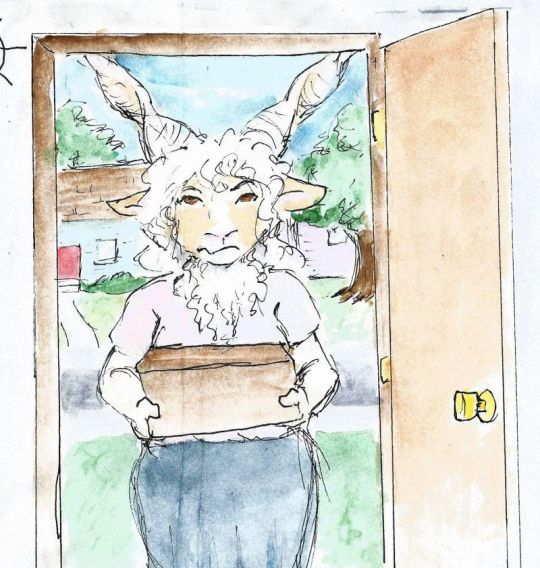
Racka sheep already dislikes her new apartment
Old /tewesday/ drawing. The helix horns are always a problem for both male and female racka sheep, but she's definitely short enough to make most doorways without a problem. The apartment she's moving into is probably an old shed someone converted into a living space and added some plumbing(not well) to bring it up to code. Eh, that's what she gets signing a lease, sight unseen.
2 notes
·
View notes